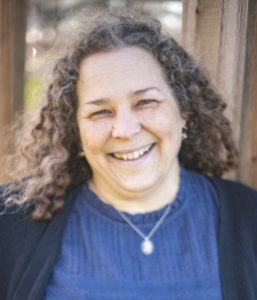YACHATS – Heide Lambert, who has been Yachats’s city manager for nine months, got a small raise and bonus this week from an appreciative city council.
When it hired Lambert last February, the council said it would evaluate her performance in November – and consider a pay raise and/or bonus if she had done well.
On Wednesday the council voted unanimously to give her a pay raise of $5,000 – making her salary $95,000 a year – and to award a one-time performance bonus of $5,000. The salary increase was 5.5 percent.

When Lambert arrived, she was just the third employee in city hall that had suffered a staff exodus, two interim managers and notices of lawsuits by an employee and temporary worker and had trouble answering the phones or sending out water bills on time.
That has mostly changed, with new – but still temporary – staff and more processes to bring some organization to the organization.
“I don’t remember a two-year period more difficult than the one we’re now completing…” said councilor Greg Scott. “It’s extremely difficult for me to envision anyone surviving, given the difficulty of the job.”
While Scott said there is room for growth and improvement, “I’m hard-pressed to imagine anyone being more successful than Heide Lambert has been.”
Councilors evaluated Lambert in an executive (closed) session Nov. 7 and released their evaluation form for Wednesday’s public session. They ranked her work on a scale of 1-5 in seven categories: leadership, execution of policies and goals, community relations, administrative duties, council relations, financial management and safety.
Mayor Leslie Vaaler, who is leaving office in January, encouraged “improvements in community relations” but praised Lambert’s integrity and efforts to improve the long-term planning process.
Mary Ellen O’Shaughnessey said “There’ll come a time when she can be out meeting with the community … we’re still playing catch-up on a lot of things.”
Scott also referenced the “iceberg perspective” — what the public may see above the surface is approximately 20 percent of the total. “To some extent … that’s what has transpired in the city in the past two-plus years,” he said. “There’s an awful lot that isn’t visible to the public.”


